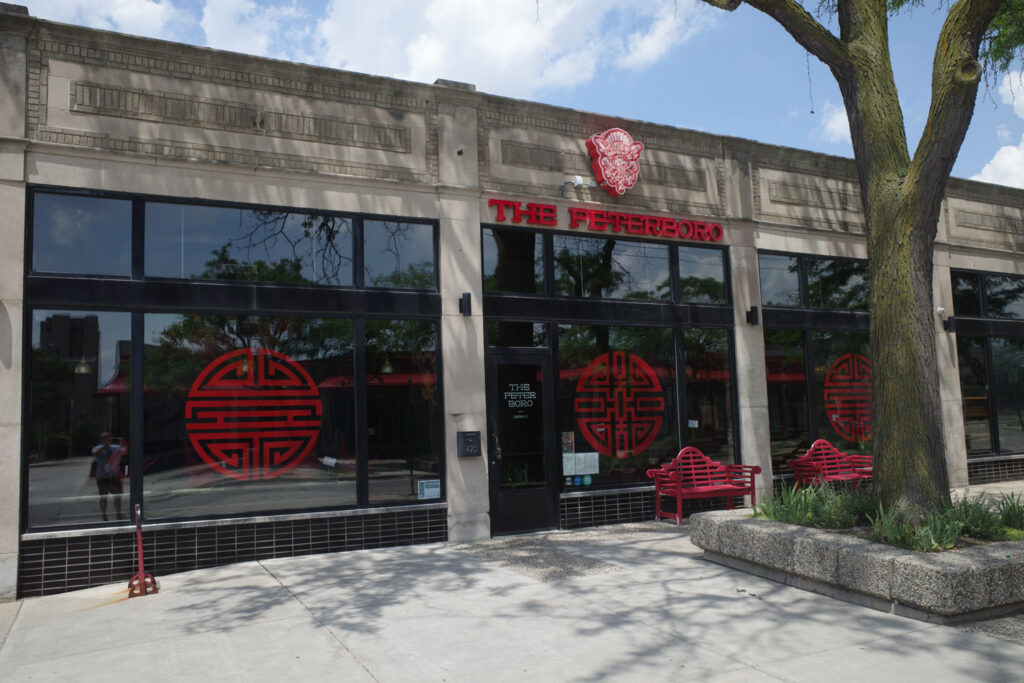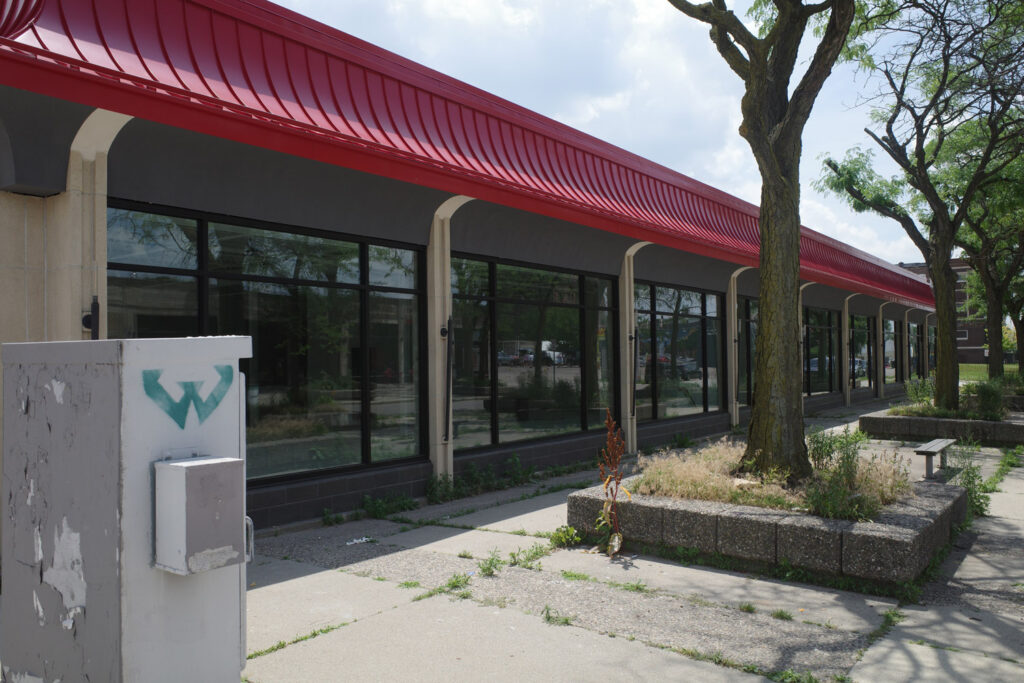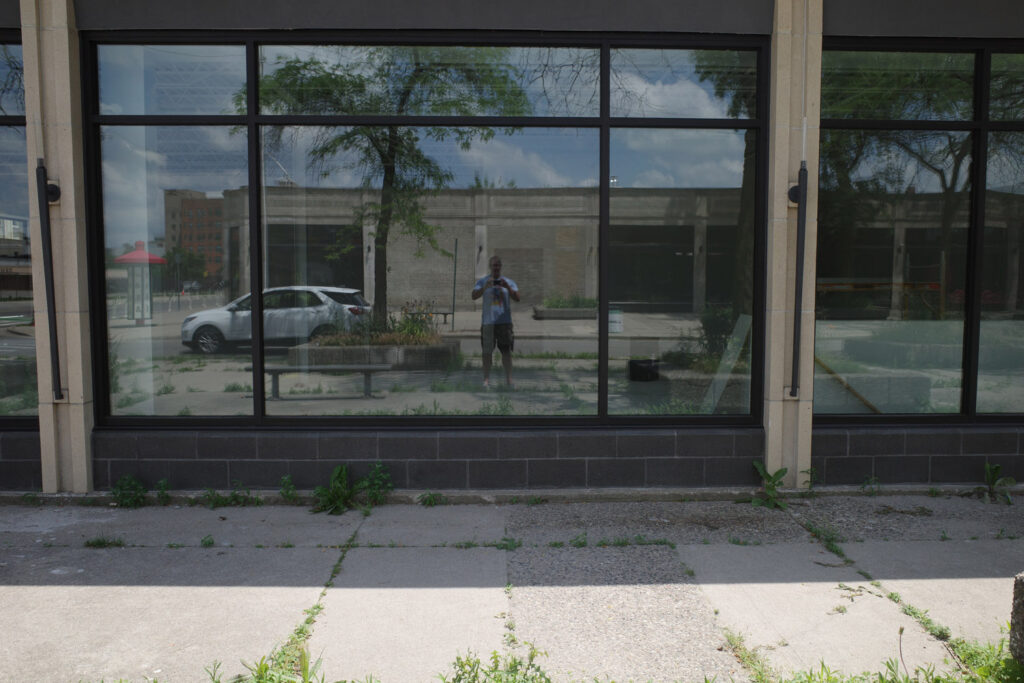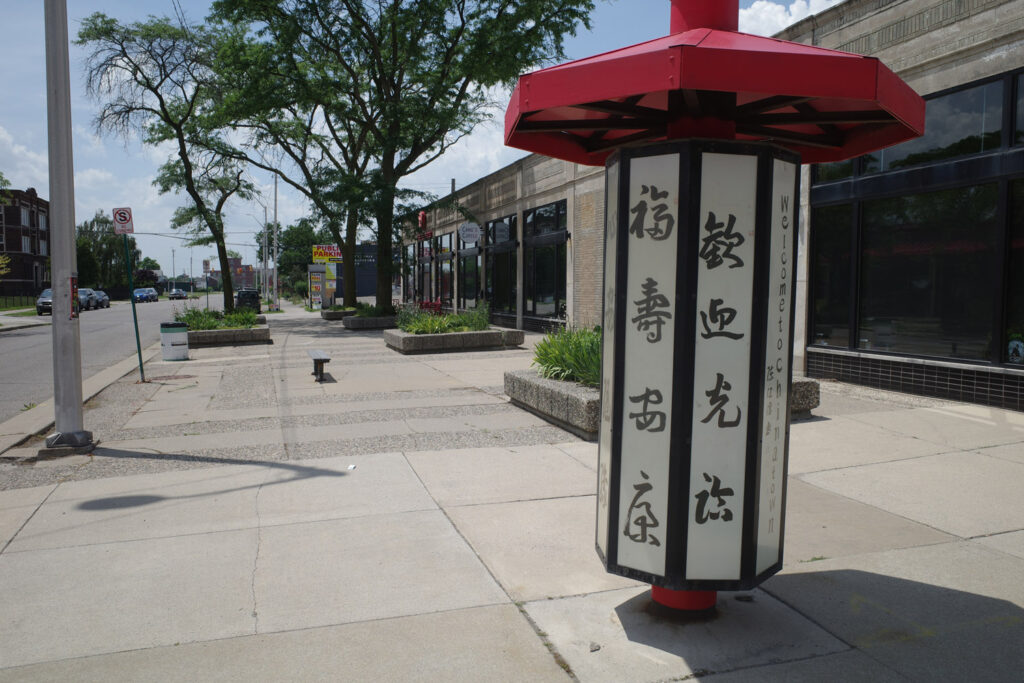Detroit — “Detroit has a Chinatown?” is a response I’ve received ubiquitously this week while searching for anything or anyone with information on this small remnant of Detroit’s past.
Detroit does in fact have a Chinatown, or more accurately, did have one—located on Peterboro Street near the Cass Corridor. So I went to Chinatown to investigate further, hoping to find adventure, perhaps danger, and some answers. I was confronted with a sad truth: Chinatown is actually a ghost town.
Nothing is there. Well, almost nothing. The Peterboro, an upscale American restaurant with Chinese aesthetic, sits at the end of the desolate side street. Further down toward Second Avenue rests the Detroit Shipping Company, carrying zero Chinese motifs on its exterior.

Standing alone on the northeast corner of Cass and Peteboro is the lone sign post that signifies in sad silence a slight hint that this is an area with Chinese-American history.
Yet, this lonely side street was the focus of an urban renewal initiative announced last year by a nonprofit Midtown Detroit Inc. and funded with $1 million of taxpayer money.
The mission—according to the state earmark initiative sponsored by state Sens. Stephanie Chang (D-Detroit), Sarah Anthony (D-Lansing) and Mary Cavanagh (D-Redford Twp.)—was to make improvements, renovations, preservations, and ultimately reinvigorate this small corner of Detroit for the benefit of the local Asian and Pan-Pacific islander Community.
Graphic design images commissioned by Midtown Detroit—a nonprofit development group without a single person of Chinese descent on its staff, executive committee, or board of directors—were released to the media depicting street decor, lanterns, and a giant arched gateway that looked like it was pulled from a 1980s John Carpenter-directed kung fu film.
All of this to say: What? What community are they talking about? A lifelong Metro Detroiter, I can’t seem to recall any area of Detroit with a vibrant Asian community, never mind such a community encamped on Peterboro Street.
According to the U.S. Census Bureau, Detroit’s Asian population is a whopping 1.6%, which includes all Asians, not just Chinese. The Pan-Pacific demographic is a breathtaking 0% somehow.

Even more absurd is the inconvenient fact that Peterboro Street technically isn’t the historic location of Chinatown. The original Chinatown was a population of 2,000 Chinese Americans living and operating businesses at the intersection of Third and Porter. That area was condemned as a slum in the early 1960s and demolished, decades later becoming the site of the MGM Grand Casino.
According to available information at the time, Detroit’s Chinese-American residents scattered off across the Metro Detroit suburbs; however, only a small number of them encamped along Peterboro Street and Cass Avenue, where Chung’s—a famous restaurant operating for years in the original Chinatown—reopened and operated until the late 1990s.
Earmarked taxpayer funds to reestablish and rebuild a community that doesn’t exist seem haplessly absurd, and wildly irresponsible, particularly when large Asian communities do exist elsewhere in Michigan.
Ann Arbor, for example, harbors an immense Asian population, making up 16% of the city’s population. Troy and Sterling Heights also have notable Chinese-American populations. We might do better to build a Chinatown there.
The entire endeavor appears performative, and any Democrat-led urban renewal plan dependent on securing the bag from state coffers is tied in some way to social justice. This one is no different.
The name Vincent Chin might ring a bell if you’re of a certain age. An American of Chinese descent from Metro Detroit, Chin was attacked along Woodward Avenue in Highland Park in June 1982 after a fight with two Detroit auto workers at the Fancy Pants Strip Club. He died a few days later.
Chin’s murder and light punishment for his killers—probation and fines—brought Detroit unwanted national attention during a time when American auto manufactures were dealing with the effects of the national recession and emergent Asian automakers getting a foothold in the American car market.
More than 40 years later, the Chinatown renewal effort is being undergirded by the inclusion of a street sign denoting Peterboro Street as “Vincent Chin Street.” At the sign’s unveiling, several Detroit politicians’ virtue signaled their outrage to local media.
Detroit Mayor Mike Duggan was in attendance for the renaming and clumsily took the opportunity to make it all about his personal pain:
“It hit me particularly because one of Judge Kaufman’s colleagues on the Wayne County Circuit Court was my father, who was also a judge. I called him that night, so angry,” Duggan said.
All of this seems suspiciously performative given that Chin never lived in or remotely near Chinatown and was murdered several miles away in another city.
But performance and cosplay might be the point for Democrats and liberal activists who’ve recently lost support with Asian-American voters.

The 2024 presidential election saw President Donald Trump increase his support among Asian voters by 10 percentage points over 2020, hauling in four out of every 10 voters in that ethic group nationwide, even during an era of heavy suspicion toward Chinese-based multinational corporations buying into the state’s economic landscape.
In addition, the Trump administration, along with federal and state law enforcement, have determined Chinese nationals in large numbers have been probing the northern ports of entry—specifically the Detroit/Windsor border port—as a means to traffic drugs and bioweapons into the country, with a considerable increase in attempts in recent years.
Ann Arbor also has seen a remarkable amount of criminal activity in recent months. A Chinese national, enrolled as a student at the University of Michigan, voted illegally in the 2024 election before fleeing back to China, and three Chinese Nationals working as researchers at the school were arrested and charged with smuggling weaponized fungus into the country in recent weeks.
Democrats might be seeking to capitalize on perceived anti-China vibes in Michigan, but ham-fisted urban renewal efforts on empty side streets will only get them quick local-news soundbites.
The real question is this: Who needs a taxpayer-funded Chinatown in Detroit? Chinese-Americans who don’t live there or the politicians and the parasitic activists who think they speak for them?
Jay Murray is a writer for Michigan Enjoyer and has been a Metro Detroit-based professional investigator for 22 years. Follow him on X @Stainless31.



